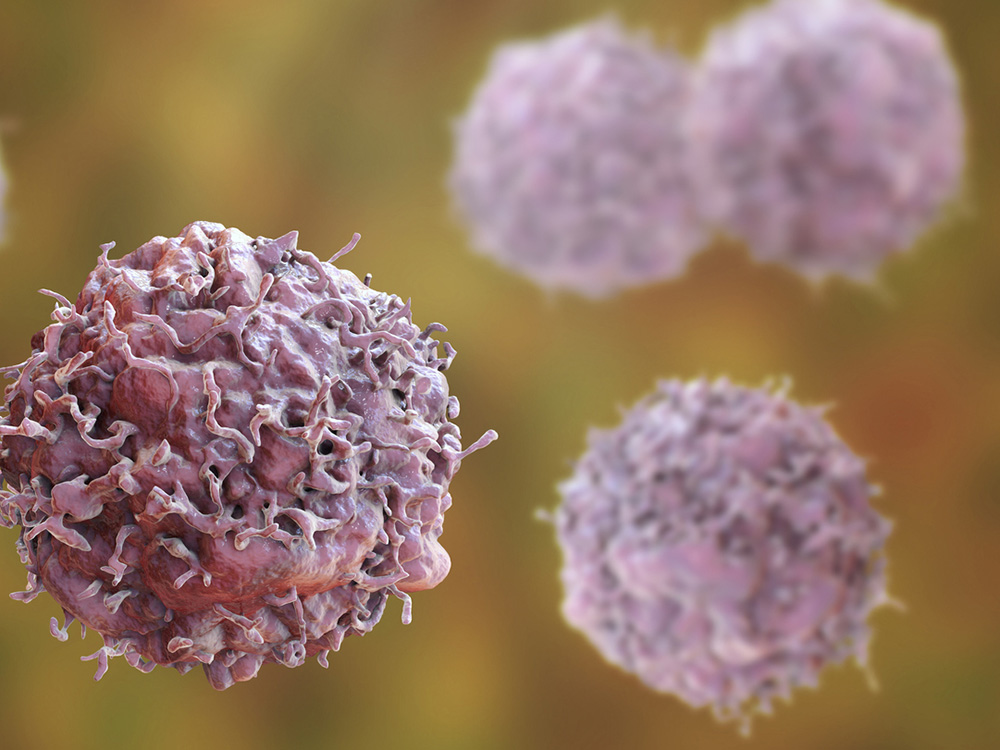
After the success of CAR T-cell therapies for blood cancers, scientists are trying to replicate the achievement for solid tumors. Patients with blood cancers have seen life-changing long-term results – and even a cure, at times – thanks to CAR T cells. Six of these therapies have been approved by the U.S. Food and Drug Administration.
One of the challenges facing cell and gene therapies for solid tumors is creating CAR T cells that only target cancer cells.
Many targets for solid tumors are expressed on both diseased and normal cells, so researchers must develop ways to avoid killing healthy cells.
One of Alliance for Cancer Gene Therapy’s stakeholders took part in cell and gene therapy research showing remarkable potential to solve this dilemma for some tough-to-treat solid cancers.
Carl June, MD, a member of ACGT’s Scientific Advisory Council and an ACGT Research Fellow, recently helped create CAR T cells with encouraging results for gastrointestinal tumors like pancreatic cancer. Dr. June is Director of the Center for Cellular Immunotherapies at Penn Medicine’s Perelman School of Medicine.
Finding a biomarker for many solid tumors
According to Penn Medicine’s website, the research team learned CDH17 is a viable target for many gastrointestinal cancers, including pancreatic cancer. Other types of gastrointestinal cancers are liver cancer, stomach cancer, colorectal cancer and esophageal cancer. Creating a CDH17-targeted CAR T cell can train the immune system to seek out cancer cells with this biomarker.
CAR, which stands for chimeric antigen receptor, is a genetic modification to T cells or natural killer (NK) cells. Doctors draw patients’ blood and separate T cells or NK cells, which are sent to a laboratory. Scientists develop the chimeric antigen receptor and add them to the cells, then activate and replicate the cells to create a population of enhanced cells.
CAR T cells or CAR NK cells are returned to the patient’s body, which now has immune cells to effectively target and fight the tumor.
CDH17 CAR T cells leave healthy cells alone
Dr. June and the Penn Medicine researchers also addressed CAR T cells impacting healthy cells. The biomarker CDH17 is found on normal tissue in the gastrointestinal system. However, in mouse studies conducted at Penn Medicine, the CDH17 CAR T cells left alone healthy tissue that expressed this protein.
Researchers credited this to the CAR T cells’ inability to reach or bind to healthy tissue as the CDH17 protein is only expressed in tight spaces between normal cells. This lack of space protected the healthy cells from CAR T cells.
The next step for this research is to begin a phase 1 clinical trial for gastrointestinal cancer cases resistant to other therapies.
Dr. June is at the forefront of other potential CAR T-cell breakthroughs focused on pancreatic cancer. He was also a pioneer in creating the first effective CAR T cells for blood cancers and ran the first successful trials, which led to the historic FDA approvals.
Alliance for Cancer Gene Therapy identifies and funds the research of scientists who are invested in finding ways to help the immune system fight cancer with better long-term effects than chemotherapy or radiation.
By donating to Alliance for Cancer Gene Therapy, you’ll support the development of bold and innovative cancer cell and gene therapies. Please donate to the Alliance today to continue the momentum toward finding cures for the toughest-to-treat solid tumors.
Sign up for email communications to get the latest news from ACGT in the field of cell and gene therapy.
Page sources
- Penn-Developed CAR T Cells Suppress GI Solid Tumor Cells, Without Toxicity to Healthy Tissue, in Preclinical Research. Penn Medicine. Retrieved from: https://www.pennmedicine.org/news/news-releases/2022/march/penn-developed-car-t-cells-suppress-gi-solid-tumor-cells-without-toxicity-to-healthy-tissue. Accessed; 04/15/2022.



